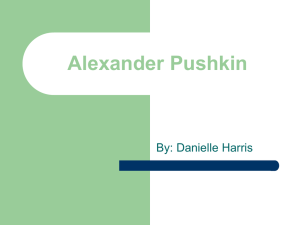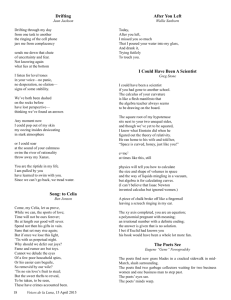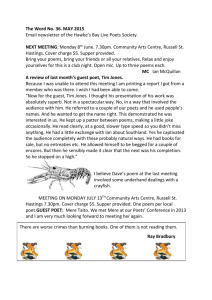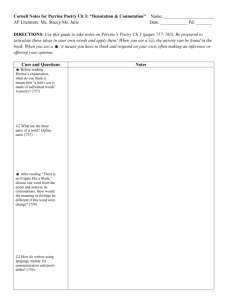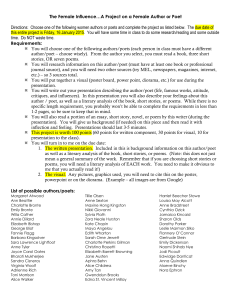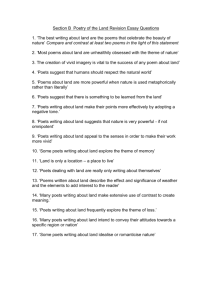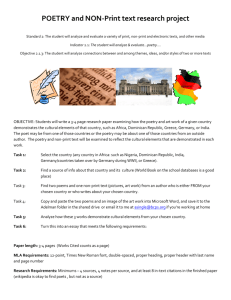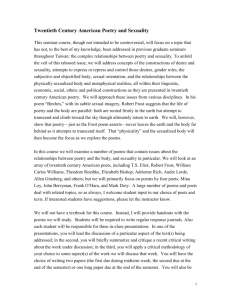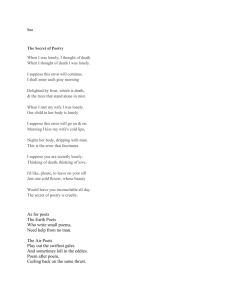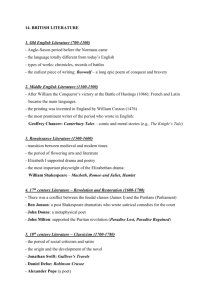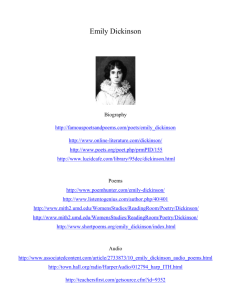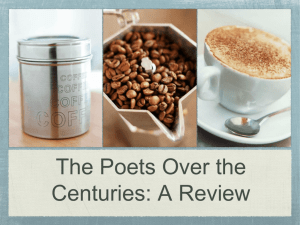ACT Passage 1 - Warren County Schools
advertisement
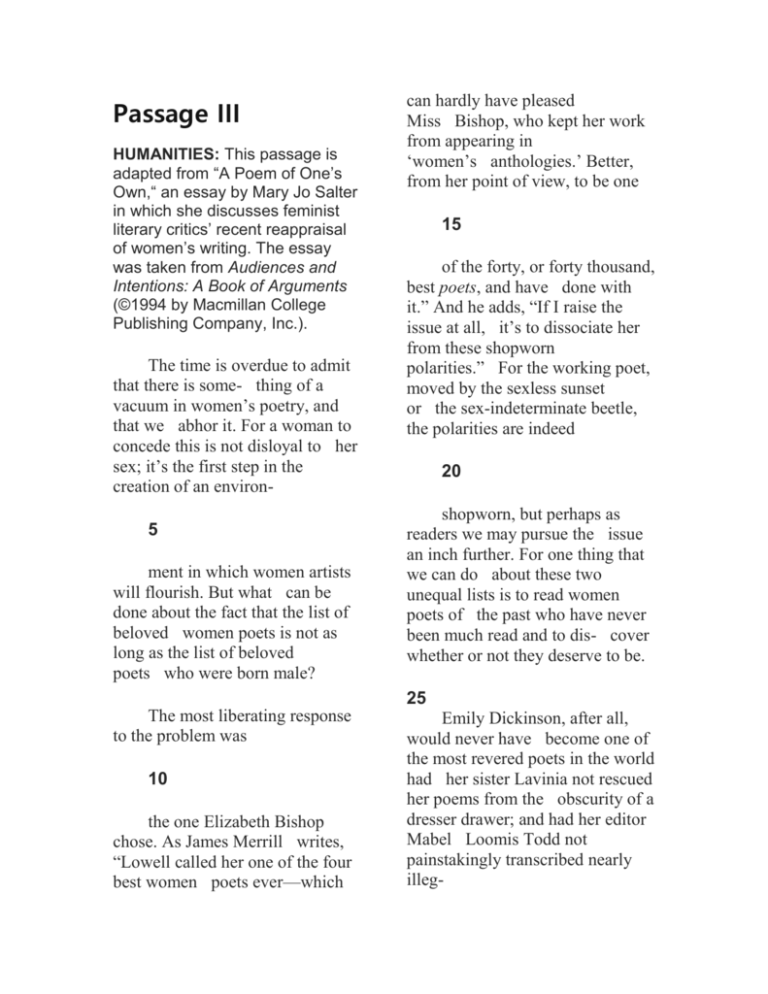
Passage III HUMANITIES: This passage is adapted from “A Poem of One’s Own,“ an essay by Mary Jo Salter in which she discusses feminist literary critics’ recent reappraisal of women’s writing. The essay was taken from Audiences and Intentions: A Book of Arguments (©1994 by Macmillan College Publishing Company, Inc.). The time is overdue to admit that there is some- thing of a vacuum in women’s poetry, and that we abhor it. For a woman to concede this is not disloyal to her sex; it’s the first step in the creation of an environ5 ment in which women artists will flourish. But what can be done about the fact that the list of beloved women poets is not as long as the list of beloved poets who were born male? can hardly have pleased Miss Bishop, who kept her work from appearing in ‘women’s anthologies.’ Better, from her point of view, to be one 15 of the forty, or forty thousand, best poets, and have done with it.” And he adds, “If I raise the issue at all, it’s to dissociate her from these shopworn polarities.” For the working poet, moved by the sexless sunset or the sex-indeterminate beetle, the polarities are indeed 20 shopworn, but perhaps as readers we may pursue the issue an inch further. For one thing that we can do about these two unequal lists is to read women poets of the past who have never been much read and to dis- cover whether or not they deserve to be. 25 The most liberating response to the problem was 10 the one Elizabeth Bishop chose. As James Merrill writes, “Lowell called her one of the four best women poets ever—which Emily Dickinson, after all, would never have become one of the most revered poets in the world had her sister Lavinia not rescued her poems from the obscurity of a dresser drawer; and had her editor Mabel Loomis Todd not painstakingly transcribed nearly illeg- 30 ible scraps using a bizarre typewriter. Helen Hunt Jackson, that once celebrated, now forgotten poet whose work Dickinson herself admired, was another “sister” in this story, for she alone fully understood Dickinson’s gifts. Jackson wrote to Dickinson urging 35 her to publish: “You are a great poet—and it is wrong to the day you live in, that you will not sing aloud,” her letter went. “When you are what men call dead, you will be sorry you were so stingy.” That has to be one of the most moving moments in American literary history. 40 And yet, and yet. Another reason many of us are devoted to Dickinson is that we love the romance of her story. Dickinson has to be one of the luckiest great writers who ever lived. She chose to live in isolation, which meant she was saved from the corruption of the 45 literary crowd; no husband ever patted her head dismis- sively, no child ever interrupted her, and when her life was finished a team of disciples ensured her immor- tality. If we do the necessary work of reappraising the literary “canon,” and if we add some new women’s 50 names to the reading list, we will nonetheless have to settle for discoveries less dramatic than Lavinia Dickinson’s, and we can’t expect them to appear with frequency. For the fact is that we can’t have it both ways. We 55 can’t simultaneously espouse the line that women haven’t until recently been allowed the depth of educa- tion and experience to become Shakespeare, while also claiming that we really have an abundance of Shakespeares, if anybody would just take the time to 60 read us. But what is all this rating and counting and classi- fying of authors about anyway? If we set up one writer against another, aren’t we giving in to what some femi- nists tell us is the adversarial mentality of patriarchal 65 culture? We may think of Matthew Arnold’s view of the function of criticism—“to learn and propagate the best that is known and thought”—and squirm in our chairs: Who’s to say what is best, who’s to say what is relevant? 70 Theoretically, these questions are of some interest. Practically speaking, most of us who are habitual readers of poetry already have an answer. While acknowledging our profound differences of taste, we never doubt that there are good poems and terrible 75 poems, and that the good ones are the only ones we have time for. What else can be done about the fact that the list of the best women poets is not as long as the men’s list? In addition to looking closely for unjustly neglected 80 women, one might question whether some men poets have been overrated. I think, for some reason, of poets whose names contain double Ws—William Wordsworth, Walt Whitman, William Carlos Williams—and while I would be sorry to throw out the entire oeuvre of them, I 85 confess that each of these poets has at times bored me to tears. The problem with taking men poets down a peg, however, is that it’s hard to do so with discernment. The zeal to undo, immediately, the centuries of neglect 90 and abuse endured by women poets has resulted in the devaluation of great poets who were born male and (far worse) in the devaluation of poetry itself.
